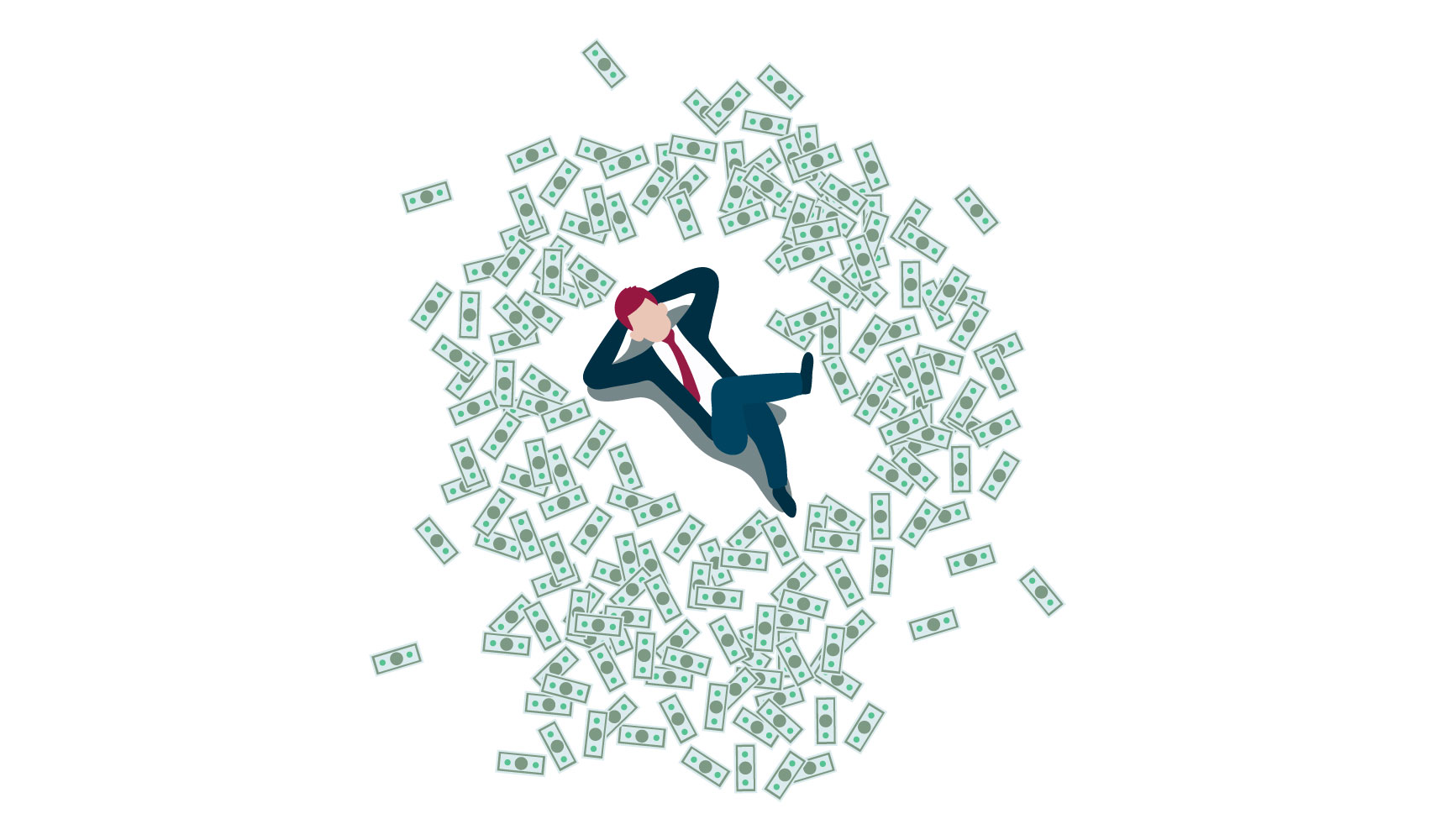The Calm After the Storm: Saudi Arabia’s Anti-Corruption Tornado and the Investor Impact
Ibtissem Lassoued - Partner, Co-Head of White Collar Crime & Investigations - White Collar Crime & Investigations / Family Business
Saeed Alqahtani - Senior Counsel - Litigation
Abdullah Alabdali
Saudi Arabia is undergoing significant reform but, beyond the maelstrom of political speculation and conjecture, what are the practical and legal implications of the anti-corruption drive for investors?
Saudi Arabia has seen tumultuous reform in the last 12 months as Crown Prince Mohammed bin Salman has sought to propel Saudi Arabia towards Vision 2030. International attention has been riveted to the government’s surging anti-corruption drive since a number of high-profile individuals were detained on corruption charges towards the end of 2017. Much of this attention, however, has been tangential, without providing clear insight into what impact such radical measures will have on the country’s legal framework and business climate.

A Favourable Forecast? The Business Outlook on Anti-Corruption
The extent and boldness of the recent measures taken in Saudi Arabia are indicative of the government’s resolve to eliminate corruption in the system. The Kingdom has been signatory to the United National Convention Against Corruption (UNCAC) since 2004, though it only ratified the agreement in 2013. The events that have garnered so much international attention are only the latest in a long-term initiative to address corrupt practices in the business sector. Between 2012 and 2017, Saudi Arabia has improved its score on the Transparency International Corruption Perceptions Index (CPI) from 44 to 49. Whilst this score still reflects significant room for improvement, it also charts measurable progress in a region that continues to face drastic change, and provides impetus for the more recent measures that clearly demonstrate the elevated priority of anti-corruption reform.
In order for the Kingdom to benefit from its drive for sustainability and prosperity, however, its determination to eradicate corruption must be symbiotic with its ability to assure investor confidence. The zero-tolerance approach that has surfaced over the past year has the potential to greatly improve the integrity of Saudi Arabia’s business market, but lingering concerns surround residual corruption with certain businesses continuing to question the feasibility and longevity of trading in the Kingdom.
The United Nations Conference on Trade and Development (UNCTD) World Investment Report 2018 suggests that, in the short term at least, the anti-corruption drive has done little to improve investor confidence and may even have exacerbated feelings of uncertainty. Inward Foreign Direct Investment (FDI) flows have fallen by more than 80% between 2016 and 2017. Whilst this trend cannot be entirely attributed to the anti-corruption sweep that happened late in the final quarter of the year, it is certainly likely to have been a contributory factor in unsettling investor confidence. From a long-term perspective, however, efforts to level the playing field in Saudi Arabia may bring fairer weather to businesses as the obstacles associated with pervasive corruption are gradually eliminated from the system.
Saudi Arabia is far from being alone in its fight against corruption; it is one of the most prevalent and pressing issues facing systems across the globe, and countries with endemic corruption problems face an almost insurmountable challenge to attract foreign investment. At this nascent stage, it would be premature to speculate as to how other Middle Eastern countries will respond to the Kingdom’s efforts, but the most desirable outcome would be for neighbouring countries to become emboldened in their own anti-corruption efforts. The UAE already stands as the regional outlier in anti-corruption efforts, with a CPI 2017 ranking of 21st in the world, comparable to many leading international jurisdictions. The combined efforts of both Saudi Arabia and the UAE could be instrumental in forging a clear path to greater transparency for other afflicted countries in the Middle East.
Staying Dry: Legal Safeguards Against Corruption In The Kingdom
The primary anti-corruption provisions are provided by the anti-bribery law issued by Royal Decree No. M/36 of 29-Dhu al-Hijjah-1412 (corresponding to 30 June 1996) (the “Anti-Bribery Law”). More recently, a decree was issued setting out rules relating to gifts for public officials (Decree No. 60 dated 18 Safar 1437H (corresponding to 1 December 2015) (the “Rules on Gifts to Officials” or the “Rules”).
Bribery of Public Officials
The Anti-Bribery Law is primarily focused on public servants. In order to maintain maximum protection for its public sector, the definition is intentionally broad, extending to personnel of joint stock companies, along with their board members and directors. It may also capture private sector individuals who are working on government-related projects, such as consultants to government projects, including temporary employees, experts appointed by the government or judiciary, or even employees of private companies contracted to provide public services. Employees of joint stock companies are also subject to the Anti-Bribery Law, as well as employees of companies and sole proprietorships engaged in banking services.
The Anti-Bribery Law broadly defines a bribee as any public servant who solicits, accepts or receives for himself or for others, a gift or payment of any sort, or a promise thereof, as consideration for any act that impinges on the integrity of office. Defences against such practices are fortified by the absence of any exemption, caveat or even significant qualifying criteria for the type of act that could invoke bribery provisions. Any act can be considered corrupt, regardless of its legitimacy, whether it is a positive act or an omission, whether it has been done in the absence of a prior agreement, and even where it involves using the influence attached to a public office to gain benefit, rather than the performance of a relevant duty.
Given the traditionally prominent role of the government in the national economy, the Anti-Bribery Law does provide relatively wide protection, despite the obvious lack of corresponding safeguards applicable to the private sector. Privatisation targets encapsulated by Vision 2030, however, necessitate more complete protection and new measures that target both the public and private sector are a requirement going forward.

Penalties and Enforcement
Under the Anti-Bribery Law, penalties for the offences set out above can reach maximum penalties of imprisonment for a term not exceeding ten years and/or a fine not exceeding one million riyals (about USD 275,000).
Along with the specific penalties applicable to public servants who accept a bribe, it should be noted that the Anti-Bribery Law provides for the person offering the bribe (whether it is accepted or not), and any accomplice, to be susceptible to corresponding punishments.
To protect a culture of respect for public officials, conviction on bribery offences also leads to dismissal and a bar from public office for a minimum of five years. In an attempt to prevent perpetrators from benefitting from the proceeds of crime, the Anti Bribery Law provides that any money, benefit or privilege derived from committal of the offence be confiscated wherever possible.
Gifts and Hospitality
No exemptions are provided for gifts and hospitality in the Anti-Bribery Law. Any benefit or privilege obtained by the bribee, regardless of its type or designation, whether material or otherwise, shall be considered a (prohibited) gift or promise. This has led to confusion in the past, as conventional business practices that would be widely accepted in other systems appeared to invoke the strict anti-bribery restrictions.
This matter was somewhat elucidated with the passing of the Rules on Gifts to Officials. Pursuant to these Rules, an official may accept gifts, given at visits and official occasions or at receptions of official guests, in accordance with custom and the courtesy protocols of such visits and occasions, though they cannot be cash and must be conventional in the context in which it is given. Crucially, businesses must be cognisant that generally, when reviewing the appositeness of a gift, the authorities will consider a number of contextual factors, including the proximity of the gift-giving to any relevant business deal, common courtesy practices of the firm in question, proportionality of the gift to conventional customs, and the appropriateness of the benefit given.
Though further provisions on the permissibility of certain types of gifts are outlined in the Rules, gifts and hospitality continue to be point of concern for business and can prove problematic in a culture where generosity is an ever-present feature of relations.

Exposure for Corporate Entities
Significantly, where the manager or any employee of a private company is convicted of any offence under the Anti-Bribery Law, and the offence was committed for the benefit of such company, the law provides for a fine not exceeding ten times the value of the bribe and/or a ban from entering into public procurement or project contracts of at least 5 years. The briber can be exempted from punishment if he informs the authorities prior to the discovery of the offence, and this may provide some means by which corporate entities can limit their exposure upon becoming aware of any apparent offences under the Anti-Bribery Law.
Preparing for the Tempest: Bolstering Defences Ahead Of Reform
From a strategic perspective, since bribery is rarely an isolated issue, responses need to be thorough and comprehensive; part of an overarching coordinated national strategy that provides protection across an entire economic system and all branches of government. In order to ensure that such strategies are effective and aligned across institutions and businesses, they require constant monitoring and enforcement by a dedicated and independent authority, Where these institutions also act as the recipient in a sound and efficient reporting mechanism, the presence of a clear and trustworthy process increases the confidence of international investors.
Aside from the well-publicised arrests, Saudi Arabia’s corruption reform has extended to measures in other parts of its anti-corruption framework that have more sustainable implications for how it will address corrupt practices in future. These bold new mechanisms also enhance the country’s invigorated anti-corruption culture, which marks an abrupt departure from its previous presumed reticence on corruption matters.

Newly-formed Supreme Committee for Anti-Corruption
The formation of the Supreme Committee is indicative of the greater strategic importance of anti-graft efforts to the country’s wider reform programme. Chaired by the Crown Prince and comprised of high-ranking officials from various sectors of governance, including security, finance and existing anti-corruption bodies, the Committee acts as a mechanism that will immediately elevate corruption instances to the remit of the highest echelons of government. In so doing, the Kingdom is sending a strong message that it will no longer turn a blind eye to practices that compromise its financial system or rule of law.
The new Supreme Committee will have vastly advanced investigative and prosecutorial powers, including the capacity to issue arrest warrants and order interim measures such as issuing travel bans and asset freezing orders. This is a critical limitation of the existing National Anti-Corruption Commission, more commonly known as Nazaha, which was established in 2012 and has limited capacity, despite its function as the primary recipient of reports of corrupt activity. The new committee will not replace Nazaha, which will continue to target the protection of national integrity, investigate instances of graft in government contracts and refer any incidents to the relevant authorities and public prosecution as and when necessary.
By coordinating the activities of both the Supreme Committee and Nazaha, the efficacy of existing measures will be boosted by covering a wider scope of prosecutorial powers, increased authority with which to pursue perpetrators, and greater scrutiny through public awareness.
Specialised Anti-corruption Units Within the Public Prosecution Department
As an additional measure, the Saudi government announced as recently as March 2018 that it had established new specialised anti-corruption units within the Public Prosecution. Cases prosecuted by these units would be carried out under the direct oversight of the Attorney General, once again demonstrating the paramount importance of corruption-related cases. Though it is unclear when the dedicated units will become operational, in creating this new advanced capacity the Saudi government has improved its ability to investigate and prosecute corrupt activity and, in so doing, will add an extra deterrent against illicit practices.
Whistleblower Culture
Whistleblower protection is a significant point of departure in many regimes across the globe. Whilst some Western systems, such as the US, actively promote whistleblowing activity through substantial financial incentives, most countries in the Middle East have thus far been slow to introduce formal protection for whistleblowers, preferring instead to rely on a positive reporting duty and conscionable actions by citizens.
In this context, Saudi Arabia’s more proactive approach appears as an outlier. Article 17 of the Anti-Bribery Law provides for rewards for information substantiating an offence. Any person who is not a briber, or an accomplice, and who provides incriminating information substantiating any offence set out in Anti-Bribery Law, shall receive a reward not less than five thousand riyals (about USD 1,350) and not more than half of the money confiscated. There may be scope for a higher reward to be approved in appropriate circumstances.
In addition, King Salman’s recent order in May 2018 to provide whistle blower protection is progressive in its outlook and signifies Saudi Arabia’s willingness to accede to international standards of rights and transparency when it comes to prosecuting corruption crimes. If Saudi Arabia is mindful of the risks posed by the potential for spurious claims and introduces adequate measures to prevent abuse of the reporting system, whistle blower protection is yet a further measure that will likely serve to reinforce the culture of zero tolerance that Saudi Arabia is attempting to cultivate.
Impending Amendments to the Anti-Bribery Law
On 2 July 2018, Saudi Arabia’s Shoura (Consultative) Council approved draft amendments to the Anti-Bribery Law. The changes, which are yet to be implemented, are reportedly aimed at providing enhanced protection to public utilities through sound prosecution procedures and severe punishment for offences, as well as further enshrining the principles and commitments contained in the United Nations Convention Against Corruption (UNCAC). At present, the extent and exact nature of the amendments are unknown, but once officially passed into law, they have the potential to radically modernise Saudi Arabia’s anti-bribery legislation. This critical development warrants close attention over the coming months as the process to implementation progresses, and could assist investors in assessing the long-term outlook for Saudi Arabia’s economic integrity.

A Weather Eye on the Horizon: Is Further Change an Inevitability?
Anti-corruption measures are an ancillary part of the legal reform process in KSA, but do not represent the totality of the country’s ongoing transition. New money-laundering laws passed in October 2017 are emblematic of the Kingdom’s resolve to eradicate illicit practices from its system. Corruption is symptomatic of countries where there is weak rule of law, but Saudi Arabia’s legal fortifications will go a long way to stamping out the nexus of criminal behaviour that facilitates and drives corruption trends. These are important contributory factors that should be considered by foreign investors when making an assessment of Saudi Arabia’s economic security.
The changes that have already been implemented will only improve the prognosis of anti-corruption in Saudi Arabia. The continued momentum garnered from these initiatives will drive awareness of corruption problems, aided by the combined activity of Nazaha and the newly formed Supreme Committee for Anti-Corruption.
This is a pivotal time for Saudi Arabia and the long-term outlook is positive – there is already evidence of widespread reform to protect the Kingdom’s economic stability and integrity and address systemic weaknesses. Simultaneously, the changes that have been gradually introduced by Saudi Arabia’s General Investment Authority (SAGIA) since 2015 to liberalise the national economy and provide space for full foreign ownership in key sectors, are creating new incentive for foreign investors to tap into the largest market in the Middle East.
Equally, investors must strike the appropriate balance between caution and enthusiasm when encountering new opportunities in the market. Corruption challenges are persistent and pervasive and will require sustained redress for the foreseeable future. Though it is yet undetermined what new mechanisms and measures may be deployed in the Kingdom in future, it is likely that subsequent steps taken to quash illicit practices will have considerable consequences for domestic and foreign investors alike. This will require that foreign investors understand the legal framework and secure their interests against inevitable shifts in the Saudi market as reform measures revolutionise the domestic business culture.
Overall, however, Saudi Arabia’s recent multifaceted approach to reform has created the perfect storm for investors and, with an impending multitude of investment projects, businesses have a prime opportunity to invest at the leading edge of FDI, assured that corrupt practices are not operating with impunity.

Stay updated
To learn more about our services and get the latest legal insights from across the Middle East and North Africa region, click on the link below.





